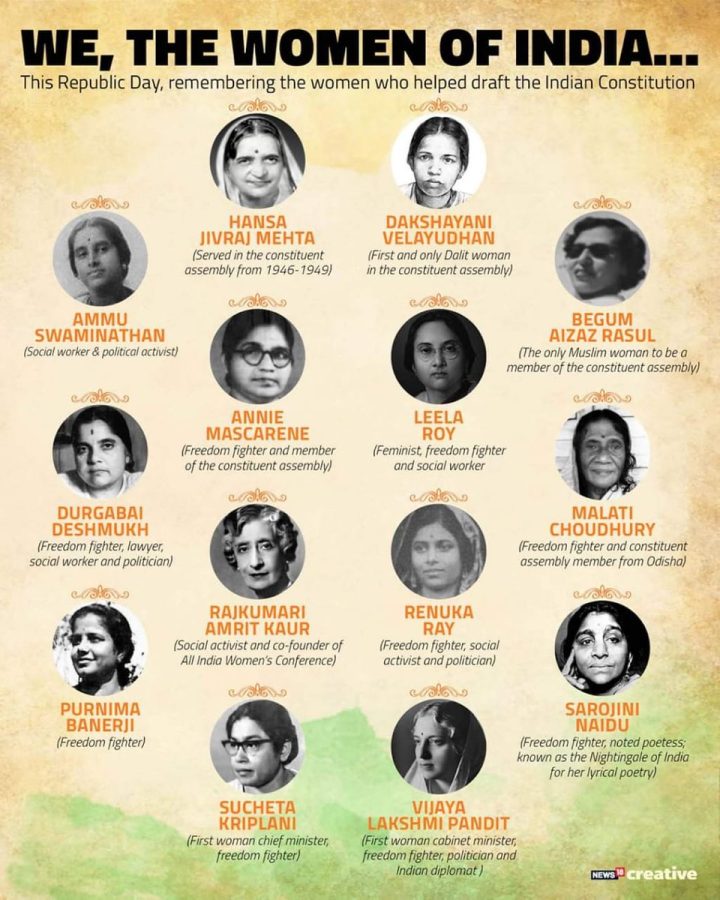Among the 299-member Constituent Assembly, there were 15 women who advocated passionately for a kind of India that would bear the imprint of both genders.
Annie Mascarene

Hansa Jivraj Mehta
“What we have asked for is social justice, economic justice and political justice, not reserved seats for quotas and separate electorates,” she said.
Dakshayani Velayutham
Amrit Kaur
Ammu Swaminathan
“The people outside have been saying that India did not give equal rights to her women. Now we can say that when the Indian people themselves framed their Constitution they have given rights to women equal with every other citizen of the country.”
Durgabhai Deshmukh- Mother of Social Work
Begum Aizaz Rasul
Vijayalakshmi Pandit
Kamala Chaudhri
Her famous works were Unmaad (Passion), Picni, Yatra (Journey)and Bel Patra (Leaf Letter) along with from many short stories.
Leela Roy
Sucheta Kriplani
Malati Choudhury
Purnima Banerjee
Renuka Roy
Sarojini Naidu